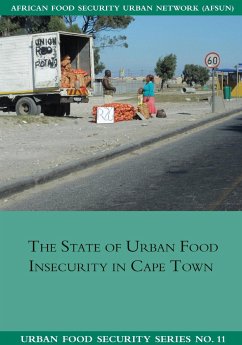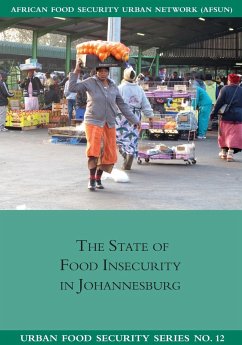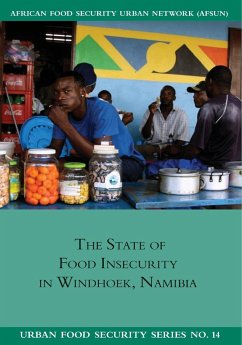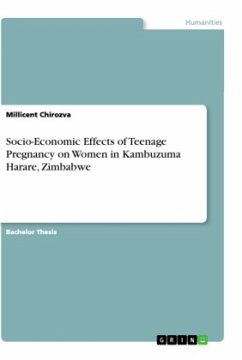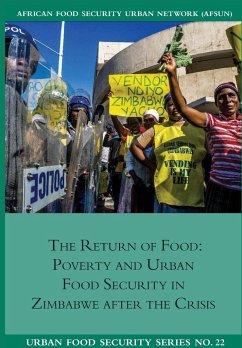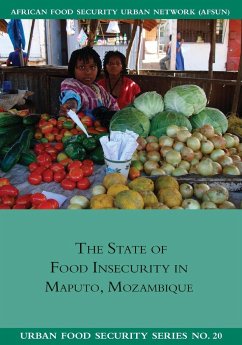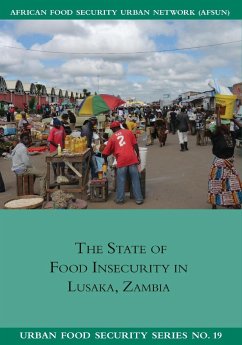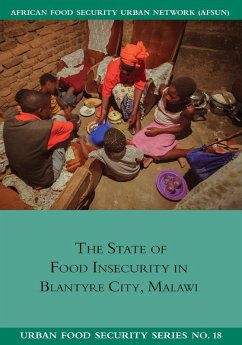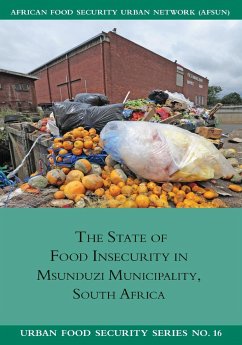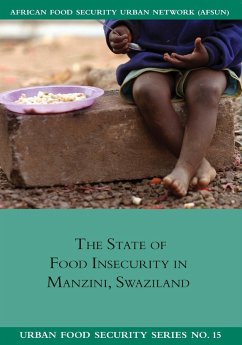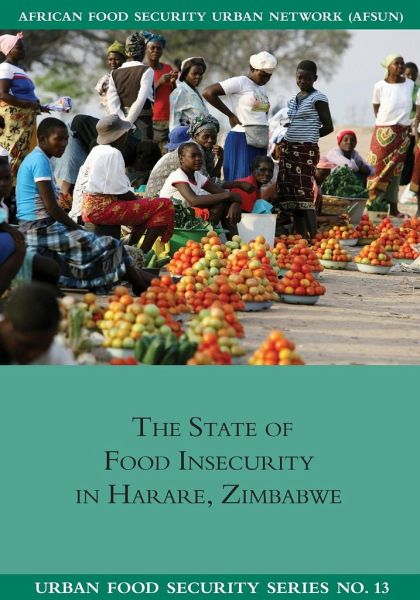
The State of Food Insecuritity in Harare, Zimbabwe
Versandkostenfrei!
Versandfertig in 1-2 Wochen
29,99 €
inkl. MwSt.

PAYBACK Punkte
15 °P sammeln!
Harare is at the epicentre of the economic meltdown and political crisis that has devastated Zimbabwe over the last decade and led to a mass exodus from the country. Those who remained in Zimbabwe's largest city and capital endured unprecedented hardship as the formal economy collapsed, unemployment soared and poverty deepened. Household surveys conducted in Harare with official sanction between 2003 and 2009 appear to demonstrate that food insecurity was not a particularly serious problem, a conclusion sharply at odds with reality. In 2008, at the height of the crisis, AFSUN therefore impleme...
Harare is at the epicentre of the economic meltdown and political crisis that has devastated Zimbabwe over the last decade and led to a mass exodus from the country. Those who remained in Zimbabwe's largest city and capital endured unprecedented hardship as the formal economy collapsed, unemployment soared and poverty deepened. Household surveys conducted in Harare with official sanction between 2003 and 2009 appear to demonstrate that food insecurity was not a particularly serious problem, a conclusion sharply at odds with reality. In 2008, at the height of the crisis, AFSUN therefore implemented its own baseline food security survey in Harare using a well-tested and reliable methodology. This paper presents and discusses the results of that survey and shows that Harare had become the most food insecure city in the SADC region by 2008. Levels of food insecurity were extraordinarily high as poor households struggled to find the income to purchase what little food was available in the shops and informal markets. The paper demonstrates that participation in the informal food economy was the major response to the crisis, providing poor households with a modicum of food and income. Urban agriculture for home consumption also grew in importance as a crisis response. While the political and economic situation in Zimbabwe has stabilised somewhat since 2008, the long-term impact of many years of enforced food insecurity on the city population is incalculable. This paper concludes with the recommendation that ongoing monitoring of the urban food security situation in Harare is essential in order to begin to develop national and municipal policies that could ensure a food secure future for the city.



